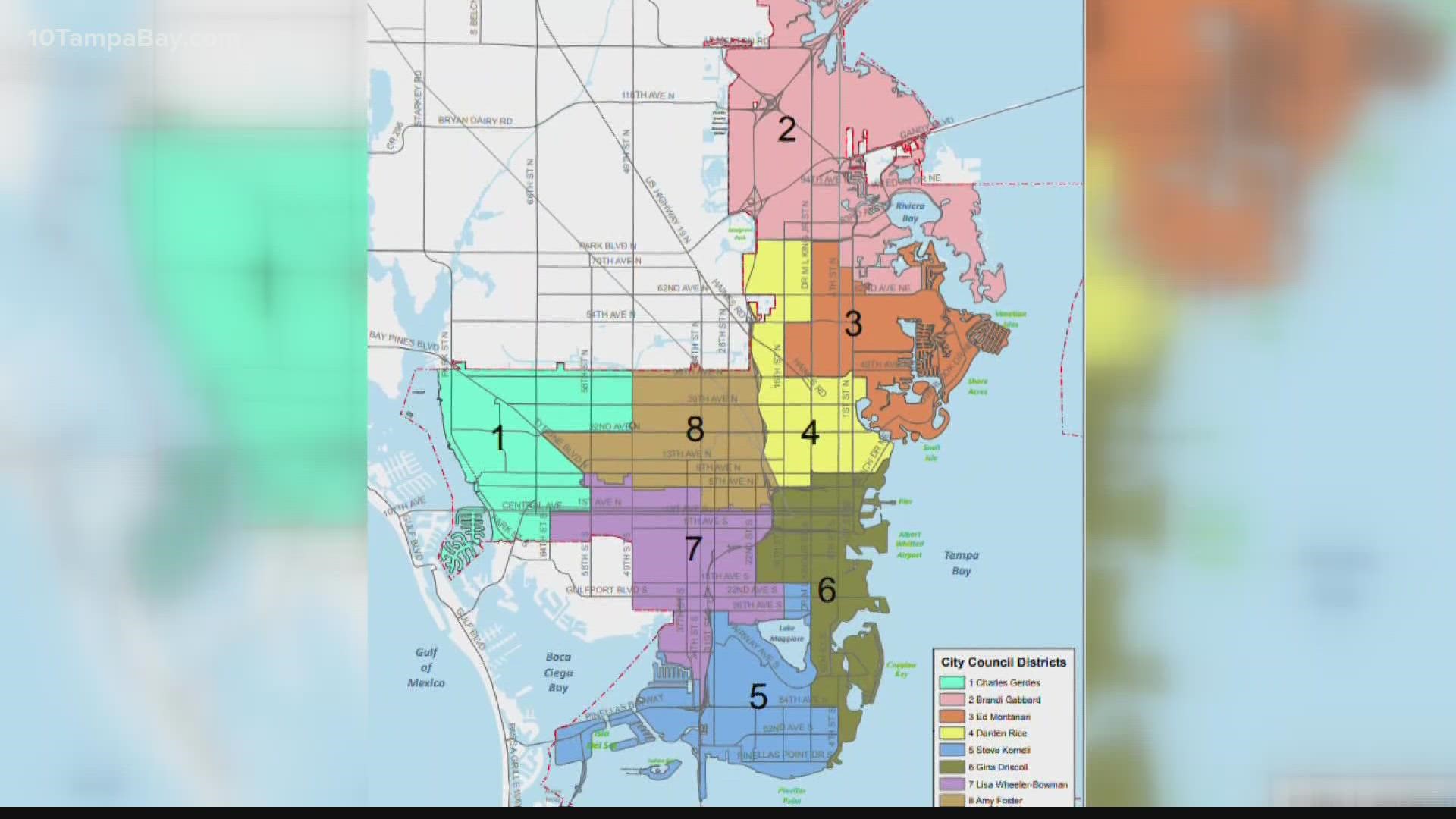ST. PETERSBURG, Fla. — Voters in St. Petersburg will head to the polls come Tuesday, Nov. 2 — and some already are sending in their mail-in ballots.
There's a lot to consider: the mayoral race, council member elections, and seven city charter amendments, including amendment two.
Proponents say this has the potential for the city to redraw district lines more fairly and ensure they don't favor one candidate over the other. Critics argue it's too restrictive and could leave some people out.
But first, what is the city charter? It's a legally binding document that municipalities must follow.
St. Petersburg was required to form a charter review commission (CRC) by the end of the year. The mayor and each council member appoint a member to the commission.
That's where voters could see changes if amendment two on the ballot passes.
The question asks whether the city should change its current process of drawing district lines throughout St. Petersburg. The country goes through redistricting every decade after the census is taken.
By voting yes, it would put some limits on who can serve on the redistricting commission, the separate body of people in charge of drawing lines.
"It's just designed to make sure that people on the commission have the best interest in being there," said Chris Burke, a former CRC member.
For instance, members will not be elected to run for elected office within the city for 10 years.
"That was a provision put in there to say, 'Hey, you can't draw the lines and later run for that same seat that you just drew the lines," said Dr. Lars Hafner, a former CRC chair and 10 Tampa Bay political analyst.
The change would also allow the public to apply for the nine-member redistricting commission. Redistricting members would also not be allowed to lobby for the city or be a member of a pact for an elected official.
"We were trying to build protections there to saying if you have any of these interests, then those interests are in conflict with drawing an independent and fair redistricting map," said Roxanne Fixsen, a former CRC member.
The mayor and council officials will still be able to appoint members to the redistricting commission, but the CRC hopes the safeguards put in place will prevent outside influence further.
"There's really no public oversight on who is selected," Burke said.
But critics of the amendment argue this might limit the number of people who can get into the commission.
"We had discussion around is this too bureaucratic? Are there too many procedures in here that would make this difficult?" Fixsen said.
The CRC recommendations argue the safeguards are necessary. Fixsen that's crucial especially as the demographics in St. Petersburg change and become more diverse.
Charter review commissioners said the amendment isn't 100-percent perfect in preventing outside influence in redistricting.
Hafner said money interest can still play a role while Fixsen said a separate commission to make the process more independent could improve the process, but it's a step.
"As the demographics are changing and these maps are drawn, whose voices get diluted, whose voices get eliminated? It depends on how these maps are drawn," Fixsen said.
There are seven amendments on the ballot for voters to weigh in on. Here's the exact question on amendment two:
Establishing New Process for Drawing District Boundaries for Election of City Council Members
Shall the City create a new process for establishing City Council district boundaries that (i) uses comprehensive standards for drawing equitable district boundaries; (ii) has requirements and restrictions for appointment, service, communication, and accepting public comment; and (iii) requires City Council to be bound by commission recommendations unless inconsistent with applicable law? The new process would occur every ten years and maintain the existing nine-member citizens commission appointed by the Mayor and Council Members.
Yes
No

